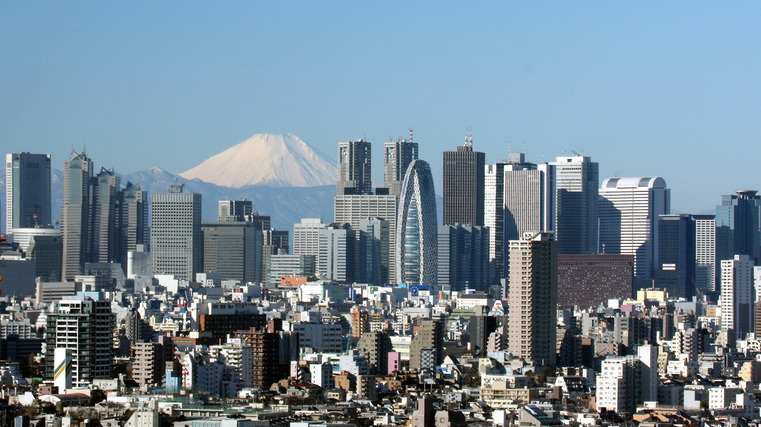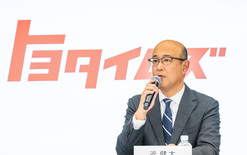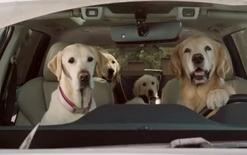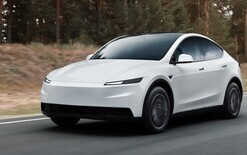The car scandal in Japan

Officials from Japan’s transport ministry have conducted an on-site inspection of the headquarters of Honda and Mazda on as part of their ongoing investigations into vehicle test fraud involving five carmakers.
The ministry last week searched the head offices of Toyota, Yamaha and Suzuki because irregularities in obtaining type approvals, which are required for mass production.
It is investigating details of what has taken place and examining whether there has been any other wrongdoing.
After completing its probe, the ministry plans to test 38 affected models to confirm whether they meet standards for type approval.
The ministry is set to lift its shipment suspension order for six models made by Toyota, Mazda and Yamaha if they are found to meet the standards. Deliveries of Japan-built Yaris Cross hybrids to New Zealand resumed on June 7 after being suspended on June 4.
Honda’s testing irregularities, including fraud regarding noise testing, affected 22 models, including the Fit, all of which are no longer in production.
Five Mazda models have been affected, including the use of doctored software in engine tests. The company suspended production and shipments of the Roadster RF and Mazda2.
In February, the ministry instructed 85 manufacturers and importers that had obtained type approval for vehicles and related parts to report any misconduct over the past 10 years after fraud came to light at Daihatsu last year.
In response, companies had reported irregularities in the tests to obtain type approval as of the end of May this year, reports the Japan Times.
Failing to follow rules
Toyota, Honda, Mazda, Suzuki and Yamaha are in the spotlight after being accused of failing to follow standardised steps when certifying new models before they go into mass production, reports Deutsche Welle (DW).
The situation has already hit sales of Japanese vehicles amid intense competition in the global automotive industry. It comes just months after China overtook Japan to become the world’s largest car exporter, partly due to booming sales of electric vehicles (EVs).
A similar scandal rocked the Volkswagen Group’s reputation and sales in 2015 after it admitted to installing illegal software to cheated emissions. Dieselgate ending up costing VW more than US$30 billion in fines and damages, and impacted on several other marques.
But back to Japan. Toyota subsidiary Daihatsu was first hit by accusations of wrongdoing in December 2023. Well-known for its kei-class models, it admitted to the widespread manipulation of tests dating back to the late 1980s, including engine and crash performance, affecting 64 models.
Daihatsu stopped all Japanese production for several months after an inquiry, replaced its chief executive and has been fined.
By April 2024, Japan’s transport ministry had verified that all Daihatsu production models had now met official safety standards and lifted the ban on shipments.
It then ordered other marques and parts suppliers to review test results from the previous decade and report any certification breaches.
A total of 85 companies were ordered to comply, including Toyota. The latter has now admitted to cheating on tests for seven models sold domestically during six assessments conducted in 2014, 2015 and 2020.
It says this involved using inadequate or outdated data in collision tests, and incorrectly testing airbag inflation and rear-seat damage in crashes.
In one example, collision damage was measured on one side of a model’s hood instead of both, as required. Emissions tests also were found to have been falsified.
Some models found with faulty tests had already been discontinued. Production of the Corolla Fielder, Corolla Axio and Yaris Cross were temporarily suspended. The issue doesn’t affect Toyota’s overseas production.
Last week, Mazda admitted to similar irregular certification testing, notably using incorrect engine-control software during assessments and crash-test violations on three discontinued models. Production of two models, the Roadster and Mazda 2, was paused.
Yamaha has admitted falsifying data involving noise-level tests on at least three motorbike models. And Honda said it had found wrongdoing in noise and output tests over eight years on dozens of discontinued models.
Comparisons to Dieselgate
Although industry expert said the problems facing Toyota and its Japanese rivals resemble Volkswagen’s debacle nearly a decade ago, Dieselgate was much worse.
“Dieselgate was a criminal case of extreme cheating of US environmental laws,” says Ferdinand Dudenhöffer, of Ferdy Research, and the former director of Germany’s Centre for Automotive Research. In this way, the Japanese safety scandal is not comparable,”
VW was found to have violated the US Clean Air Act by intentionally programming diesel engines to activate their emissions controls only during laboratory testing.
The measure caused the vehicles to meet US standards for nitrogen oxide (NOx) output when they actually emitted up to 40 times more NOx during normal driving.
VW was then investigated in multiple other countries and received billion-dollar fines by governments and compensation claims from owners of 11 million vehicles fitted with the illegal device.
Felipe Munoz, senior analyst at the London-based automotive research house JATO Dynamics, says: “Dieselgate certainly had an impact on VW’s sales initially, but it faded fairly quickly because the vehicles are so popular. A year later, its sales were growing again.”
Munoz believes any impact on Japanese car sales will be temporary, but could hurt smaller players more than Toyota, reports German broadcaster DW.
Even so, the cover-up is a major setback for Toyota, which gained a competitive edge for decades for producing high-quality vehicles, and setting the standard for durability and long-term resale value.
Toyota has also benefited from producing hybrid cars rather than purely electric models. This has produced massive profits with many consumers still wary of EVs’ ranges and residual values. That said, Toyota now risks falling behind its Chinese rivals, which have fully embraced electric cars.
The way forward
Japan’s transport ministry has been conducting on-site inspections at offices of the carmakers involved.
Tetsuo Saito, the country’s transport minister, says: “These acts erode the trust of vehicle users and shake the very foundation of the vehicle certification system. It is extremely regrettable.”
The investigation could take several months and the financial impact of the scandal is yet to be fully assessed, while the Japanese government has indicated it will
take measures to lessen aby economic damage.
While apologising on June 3, Toyota chairman Akio Toyoda said some certification rules might be overly stringent, but insisted he wasn’t condoning the violations.
He added the company might have taken short cuts in its testing process at a time when it was developing several new models. “We are not a perfect company. But, if we see anything wrong, we will take a step back and keep trying to correct it.”





